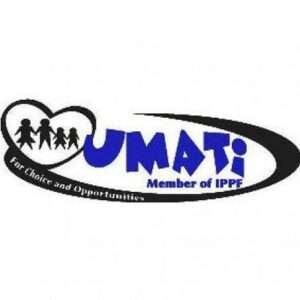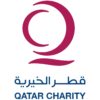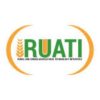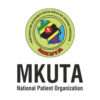Terms of Reference For Media Advocacy Toolkit at UMATI
Job Overview

Terms of Reference For Media Advocacy Toolkit at UMATI
Consultancy to Develop media advocacy toolkit to streamline SRHR/FP messages tailored to specific audiences to accelerate utilization of family planning information & services.
- BACKGROUND
- CHAMA CHA UZAZI NA MALEZI BORA TANZANIA (UMATI)
Chama cha Uzazi na Malezi Bora Tanzania (UMATI) is an autonomous, non-political national NGO providing Sexual and Reproductive Health and Rights (SRHR) information, education, and services in Tanzania. It has been in operation since 1959 and became a leading national organization providing quality youth-friendly SRH information and services, particularly to young people and women. In 1973 UMATI became a full member association of International Planned Parenthood Federation (IPPF) where technical and core funds support was provided. By being a member of IPPF, UMATI is internationally connected through experience sharing with other IPPF member associations.
UMATI is envisioning to see a Tanzania where people are free to choose and exercise their Sexual and Reproductive Health and Rights without discrimination in gender, sex, and age. The visioning process of UMATI highlighted the need to integrate “without discrimination” as a recurring theme as well as an organizational value statement. “Freedom of choice” was agreed as a paramount inclusion at the end that UMATI would love to see by doing its core business.
UMATI’s Mission Statement is to champion SRHR and provide information and services targeting the young and underserved. In coming up with the Mission Statement, cognizance was put on the strategic position of UMATI as a leading SRHR service provider in Tanzania. This was eventually replaced by “champion” recognizing the need to lead not only by the provision of services but also by enabling other service providers including capacity building to local CSOs partners in the country to champion SRHR through their advocacy initiatives. UMATI strives for structural poverty reduction by improving the health of people in the country regardless of gender and political or religious beliefs, with priorities being given to the poorest communities and hard-to-reach populations.
- INTRODUCTION
About FP in Tanzania
Tanzania has one of the fastest-growing populations in the world, with a 37% growth over the last decade, increasing from 45M (2012) to 6IM (TDHS 2022). Despite the government’s significant efforts to increase access to RMNCAH/ Family Planning, Tanzania still faces challenges, with most reproductive health indicators stagnant or declining (DHS 2022). The population growth rate is 3.2%, with a regional variation; 3.8 in Zanzibar and 7.1% in Katavi (2022 census). The population is expected to double in 22 years if the growth drivers are not addressed. The total fertility rate declined slightly from 5.2% to 4.8% and 5.5% in the rural.
Over 44% are under the age of 15 years, and 70% are under the age of 30. The demographic profile indicates a high dependency rate of 87.1%; the young and unemployed are much more than the workforce.
The total demand for FP decreased from 61% to 59% for married women and from 79% to 77% for unmarried women (DHS2022). There is a decrease in the modern contraceptive prevalence rate (mCPR) from 32% to 31.1%, with a regional variation of 56% in Njombe to 9% in Simiyu and Kazkazani in Zanzibar. The mCPR among unmarried Women of Reproductive Age (WRA) in urban and rural areas declined significantly from 47.5% in 2015/16 to 34.5% in 2022 in urban and 44.1% to 37.5% in rural. Interestingly, urban married and unmarried women used traditional methods at a significantly higher rate than rural women; 10,6% for married urban and 4.7 for married rural, 14.7% for unmarried urban and 4,1 for unmarried rural.
In the 2022 DHS for Tanzania, the National average unmet need for married women aged 15-49 is 21% and 32% for unmarried women. The lowest unmet need is 6% in Lindi, and the highest is 39% in Simiyu.
The Tanzania DHS 2022 national mCPR for adolescents (15 – 19 years) reduced from 18.6% to 15.2%, the birth rate decreased from 132 to 115 births per 1,000 live births, and teenage pregnancies reduced from 27% to 22%. Adolescent pregnancy rates are higher in regions with high mCPR, e.g., Songwe has an mCPR of 42.9 and a teenage pregnancy rate of 44.9%. Ruvuma has an mCPR of 40.9% and a teenage pregnancy rate of 37.2%, reflecting the high unmet need for young people due to factors such as discrimination, lack of information and youth-friendly services.
Condom use is low, with only 38% of women aged 15-19 using a condom during their last sexual encounter (THMIS, 2012). Maternal mortality is high at 556/per 100,000 live births; over 20% of the deaths are among young women (TDHS,2025/16). Nevertheless, the health policies in the United Republic of Tanzania continue to pledge to attain universal health coverage (UHC), ensuring access to quality healthcare services, including Family Planning services within a broader concept of Sexual and Reproductive Health and Rights (SRHR), to all households. Tanzania prioritizes in addition, Tanzania recognizes the role family planning will play in achieving the Vision 2040 target to reduce the population growth rate from 4.9% to 4.2%, which will result in reaping the demographic dividend.
- PROJECT GOAL, RATIONALE AND OBJECTIVE,
- Project Goal
The goal of a Media Advocacy Toolkit for Family Planning Advocacy is to equip advocates and organizations with the necessary tools and resources to effectively use media channels and platforms to promote and advance family planning initiatives and reproductive health goals. The toolkit aims to harness the power of media to raise awareness, engage the public, influence policymakers, and drive positive changes in attitudes, behaviors, and policies related to family planning.
- Rationale of the media advocacy toolkit
Media Advocacy Toolkit for Family Planning Advocacy is a valuable resource that harnesses the power of media to raise awareness, engage diverse audiences, influence policies, and empower advocates in promoting family planning and reproductive health initiatives. By leveraging media channels strategically, the toolkit enhances the potential for positive social change and advances the overall goal of improving access to family planning services and reproductive health for all individuals.
- 3 Objectives of the consultancy
The communication consultant will be responsible for developing a comprehensive media advocacy toolkit to streamline RHCS/FP messages tailored to specific audiences. The toolkit aims to accelerate the realization of the Compact Agreement, ICPD+25, and FP 2030 commitments. The specific objectives include:
- Identify key target audiences and their unique communication needs and preferences.
- Develop a set of key messages and talking points aligned with the objectives of the Compact Agreement, ICPD+25, and FP 2030 commitments.
- Compile evidence-based information, research, and success stories that support RHCS/FP messages.
- Create guidelines on tailoring messages for different communication channels and platforms.
- Provide practical advocacy tools and resources, including sample press releases, op-eds, infographics, fact sheets, and multimedia materials.
- Incorporate storytelling and personal narratives to effectively convey the impact of RHCS/FP interventions.
- Integrate monitoring and evaluation mechanisms to measure the impact and effectiveness of the toolkit.
- KEY DELIVERABLES, TIMELINES AND RESPONSIBILITIES
- Key Deliverables
The key deliverables for this consultancy will include the following:
- A detailed media advocacy toolkit for RHCS/FP, including key messages, talking points, evidence-based information, and practical resources.
- Guidelines on tailoring messages for different target audiences and communication channels.
- Recommendations on incorporating storytelling and personal narratives.
- Monitoring and evaluation framework to assess the impact and effectiveness of the toolkit.
- Timeline
The entire assignment is expected to take 20 working days carried through within a calendar month from the date the contract has been signed between UMATI and the Consultant as per the below work schedule: –
Tasks and Number of Days
- Inception meeting with UMATI Project Team – 1 Day
- Conduct a Media landscape analysis to understand the media context in Tanzania (Mainland and Zanzibar) through consultative meeting with different groups, key FP partners, and other key informants – 7 Days
- Draft the toolkit and its framework and submitted for review. UMATI will review and share the draft kit with MST and UNFPA for further review. The feedback is given to the consultant for revision and resubmitted to final review and approval – 7 Days
- Review and validation of Media advocacy tool kit with FP Stakeholders and Media House (Journalists) – (Mainland and Zanzibar) – 3 Days
- Dissemination of Media advocacy tool kit. MOH and PORALG officials from health promotion and RCH/FP units including FP IPs and representatives of Media houses will be disseminated with the approved Media tool Kit – 2 Days
Responsibilities
The consultant will be responsible for the following;
- Develop the work plan for the assignment.
- Conducting media landscape analysis to understand the media context in Tanzania
- Developing data analysis tools that can collect, clean, process, and analyze data.
- Develop media advocacy toolkit for Family Planning Advocacy
- Facilitate the review and validation workshop of media toolkit with media houses, stakeholders from mainland and Zanzibar as identified by UMATI
- Finalize the media toolkit after gathering the inputs from the meeting
- Facilitate the dissemination workshop of media toolkit to MOH, representatives of IP’s, media houses and other stakeholders as identified by UMATI.
5 BUDGET
The consultant should provide a detailed breakdown of expenses, including fees and any additional costs related to data collection, or stakeholder engagement. The cost of workshops will be borne by UMATI.
- CONSULTANT PROFILE AND REQUIREMENTS
The communication consultant should possess the following qualification/expertise:
- Demonstrated expertise in communication, advocacy, and media campaigns related to RHCS/FP or similar fields.
- Strong understanding of the Compact Agreement, ICPD+25, and FP 2030 commitments.
- Experience in developing communication materials, toolkits, and resources for diverse target audiences.
- Knowledge of evidence-based approaches and data-driven communication strategies.
- Excellent research, writing, and editing skills.
- Ability to work independently, meet deadlines, and incorporate feedback from stakeholders.
- APPLICATION PROCESS
The proposal should include Curriculum vitae highlighting relevant experience, proposal outlining the approach, methodology, and work plan. The proposal should also include examples of previous work related to media advocacy, communication toolkits, or RHCS/FP campaigns. The proposal should be titled “Consultancy to Develop media advocacy toolkit” to be submitted to the Executive Director, Email: [email protected] by no later than 2nd August 2023.
Late or incomplete proposals will not be accepted.





